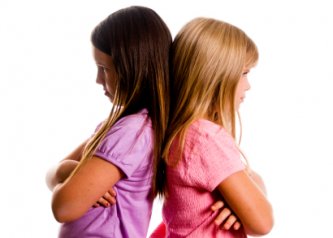 Teaching your child how to resolve conflicts is a necessary part of their emotional intellect, and critical decision making skills. Conflicts are a typical part of every life – whether simple or complicated. It is essential that we all are equipped with the knowledge of how to resolve conflicts. Conflict resolution should be taught to children at a very young age. While it is your responsibility to teach this very important lesson to your child, you are likely to find that it is quite challenging. This is why I elected to create this guide for teaching your child how to resolve conflicts.
Teaching your child how to resolve conflicts is a necessary part of their emotional intellect, and critical decision making skills. Conflicts are a typical part of every life – whether simple or complicated. It is essential that we all are equipped with the knowledge of how to resolve conflicts. Conflict resolution should be taught to children at a very young age. While it is your responsibility to teach this very important lesson to your child, you are likely to find that it is quite challenging. This is why I elected to create this guide for teaching your child how to resolve conflicts.
1. The first thing that you should teach your child when it comes to resolving conflicts is that we are all different. We do not always think the same thoughts, believe in the same things, or act in the same ways. It is important that your child understands that these are the things that make us individuals and it is ok to have different thoughts, beliefs, and even act differently. We should teach them to appreciate the uniqueness in each person that we come in contact with. By teaching your child this, you are already taking the first step in conflict resolution before a problem even arises.
2. The next step in teaching your child how to resolve conflicts is to ensure that you express to them the importance of their safety, and the safety of others when they become angry. It should be stressed that no one should ever hit, push, or engage in any other act of violence against another person. In the same respect, no one should ever take their anger out in such a way that they become physical in a negative fashion. If your child feels as if they are angry and that they need some type of physical release, they should be encouraged to run, or some type of other exercise. It is not appropriate to hurt themselves, or another person.
3. The next way to help your child when it comes to conflict resolution is to ensure that you teach them how to effectively communicate that in which they are feeling. Many times, children will actually demean the person that they are angry with, or they will work to accuse someone else. Instead of doing this, encourage your child to say things like “I feel as if ________”. By talking to a person in this fashion, the person is most likely to ease up and not become defensive. The conversation will turn productive, and the conflict will be on a productive path to resolution.
4. It is important to teach your child that it is not appropriate to yell, or get loud in any way with the person that they are angry with. It is important to ensure that you let them know talking is always much more productive than yelling and losing control. Maintaining control is always more effective than losing it. Inform your child that it takes a stronger, more mature individual to maintain control in the midst of a conflict.
5. Next, it is important to inform your child that when it comes to being wrong, they should admit it. Admitting wrong in a situation is the first step to self improvement and growth. By teaching them to accept that they are wrong and made a mistake, you will be teaching them to take responsibility for their actions. If the child is wrong, they should express an apology. When teaching them to admit wrong, you should also teach them how to make a sincere apology.
Teaching your child how to resolve conflicts is very important. No matter what walk of life, or who a person is, conflicts are evident. By equipping your child with the knowledge to handle those conflicts, you are equipping them with an important life skill that they will hold for a lifetime!
No part of this article may be copied or reproduced in any form without the express permission of More4Kids Inc © 2009












1 Comment